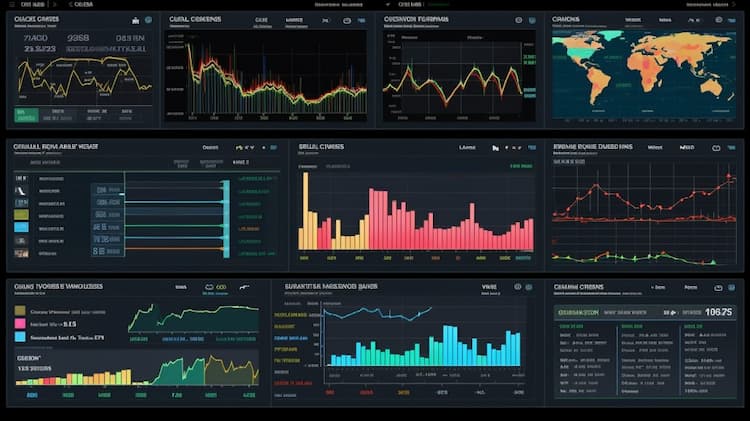
REET VS VNQ
Exchange-Traded Funds (ETFs) have become an essential part of modern investment portfolios, offering diversified exposure to various asset classes. In this article, we will conduct a comprehensive comparison between two popular Real Estate ETFs: REET (iShares Global REIT ETF) and VNQ (Vanguard Real Estate ETF). We'll delve into various aspects including their tickers, full names, issuers, sectors, top holdings, capitalization, strategy, tracking, and exposure.
REET VS VNQ: Overview
REET and VNQ are both Real Estate ETFs, but they have distinct approaches. REET provides global exposure to real estate investment trusts (REITs), offering a broad view of the global real estate market. In contrast, VNQ primarily focuses on U.S. real estate, investing in real estate companies and REITs listed on U.S. stock exchanges. Understanding these differences is crucial for investors seeking real estate exposure.
REET VS VNQ: Sectors and Top Holdings
REET's portfolio is diversified across various sectors, including residential, commercial, industrial, and retail real estate. Its top holdings include prominent global real estate companies and REITs like Simon Property Group and Prologis. On the other hand, VNQ concentrates on the U.S. real estate market and includes holdings in major real estate companies such as American Tower Corporation and Crown Castle International Corp. Examining the sectors and top holdings can help investors choose the ETF that aligns with their real estate investment objectives.
 REET overlap REET VS VNQ
REET overlap REET VS VNQ
REET VS VNQ: Capitalization and Strategy
REET boasts a substantial asset under management (AUM), reflecting its popularity among investors looking for global real estate exposure. VNQ focuses on tracking the performance of the MSCI US Investable Market Real Estate 25/50 Index, providing targeted exposure to the U.S. real estate market. Differences in capitalization and investment strategy between these two ETFs lead to varying risk and return potential, making it essential for investors to evaluate their investment goals.
REET VS VNQ: Tracking and Exposure
REET aims to provide investors with exposure to global real estate markets through a diversified portfolio of REITs and real estate companies. VNQ, on the other hand, tracks the performance of U.S. real estate by holding a selection of U.S. REITs and real estate firms. Understanding the tracking methodology and geographical exposure can help investors make informed decisions based on their investment preferences and risk tolerance.
Conclusion
REET and VNQ are valuable tools for investors seeking real estate exposure within their portfolios. To gain deeper insights into holdings, correlations, overlaps, and other essential details of these ETFs, consider using ETF Insider, an intuitive and user-friendly app. It provides comprehensive information on various financial instruments, helping investors make informed decisions based on their unique needs and preferences.
Disclaimer: This article does not offer any investment advisory services. Always consult with a financial advisor or conduct thorough research before making investment decisions.
REET ETF issuer
REET ETF official page
REET quote and analysis
Discover the top holdings, correlations, and overlaps of ETFs using our visualization tool.
Our app allows you to build and track your portfolio.
To learn more about the REET iShares Global REIT ETF, access our dedicated page now.


















